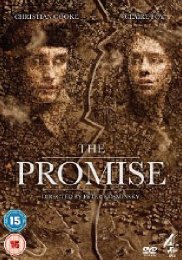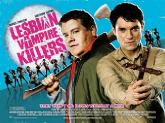The Promise
Introduction
With the liberation of the Nazi concentration camps, the Nazi attempt at a Final Solution for the 'Jewish problem' came to end, although it wasn't an end in itself. Despite the death of approximately 6 million Jews, the survivors found that they weren't welcomed back in their home towns and even found their homes occupied by others. It's little wonder then that a collective desire to reach their biblical homeland in Palestine was the overwhelming wish of so many. Jews had always looked to settle in Palestine over the centuries after various pogroms across Europe and Asia, which naturally led to protest and resistance from the native Palestinian Arabs.
The British Government had tried for a long time to tread a fine line between sympathy for the Jewish desire for a home state and the rights of the Palestinian Arabs but slowly found themselves giving way. In 1922 the Jews accounted for approximately 11% of the population of Palestine, this rose to over 33% by the end of World War II. The British strategy in this post-World War world was to restrict Jewish access to Palestine by either turning them away or placing them in detention camps, which in turn led the Israeli Irgun (a paramilitary organisation) to start terrorist actions against the British occupying forces. Ultimately, these actions and more would lead to the withdrawal of British Forces and the formation of Israel as a nation in 1948.
Peter Kosminksy's new release The Promise, currently showing on Channel 4, looks to examine some of the events and issues from the period that led to the formation of the nation of Israel whilst also looking at current events in Israel, albeit in 2005. 18 year old Londoner Erin (Claire Foy) is dragged by her mother (Holly Aird) to a hospital to see her seriously ill grandfather Len, someone she has only see twice in her life and is only there reluctantly now. When her mother then drags her to his house to clean it out in preparation of his death, Erin finds an old diary and her curiousity is piqued, especially when her mother exhibits a rather negative response to its discovery.
Smuggling it out, she discovers the core of the diary is set around Len's (Christian Cooke) military service as a paratrooper, beginning with the liberation of the Bergen-Belsen concentration camp and then service in Palestine as part of the post-WWII British peace-keeping force. Co-incidently, Erin's best friend Eliza has dual nationalities and due to return to Israel to begin her two year stint of National Service, persuading Erin to accompany her to her homeland for the first couple of months until she graduates from basic training. Welcomed into Eliza's home by her parents, Erin finds herself alone for huge swathes of time and and mainly fills it with reading her grandfather's diary.
As she delves deeper into Len's private recollections, she discovers some disturbing truths about his time in Palestine and some of the atrocities he witnessed during this time of the birth of Israel. As she learns more about her grandfather's experiences, she also starts to witness the complexities of life for both Jews and Arabs alike, but ultimately finds herself retracing his steps in order to fulfill a promise that he was unable to.
Picture
This is modern TV mini series, actually the last part aired just yesterday, so the picture is rather good. Both periods are well done and the production design is fantastic, especially for the 1940 period.
Extras
Audio Commentary on episode one by director Peter Kosminsky
Deleted Scenes - nothing special here as you would expect.
Filming in Israel for 2005 - started to watch this as a disc 1 extra but it started to show spoilers from the second disc so I stopped watching it. Not so much a featurette but just backstage footage with explanation.
Filming in Israel for 1940's - again not watched as on disc 1.
Overall
The timing of this series is quite apt when you consider the recent events in the Middle East, with Mubarak falling in Egypt and Gaddaffi looking increasingly fragile in Libya. You just wonder where it will all end and then await the inevitable focussing of attention back on the small Jewish nation of Israel, a bone of contention with Arabs in the region since its formation in 1948. Personally I think it's about time that a decent drama series came along to allow us to look at the situation in Israel and the plight of both the Palestinian arabs and Israeli's in a hopefully unbiased way. Kosminsky's latest offering does allow us an attempt at this, whether you can be unbiased enough to see both sides is a matter of conscience for the viewer. For those who would criticise this series for historical inaccuracies, both storylines are simply meant to seen through the eyes of the two main characters, nothing more. It's similar to life in general, there are normally three sides to every story; mine, yours and the truth - the latter generally being a combination of both of the former, sometimes in equal parts and at other times in disproportionate parts. We can only reach true reconciliation when prepared to at least acknowledge someone else's opinions or view on events.
There is some superb acting within this series, mainly it must be said within the 1940's segment which would have made a fantastic story all by itself with Christian Cooke rather superb as the paratroop Sergeant who is caught between two different peoples and struggling to maintain a sense of balance during a rather tumultuous time. Initially his character is rather sympathetic to the plight of the Jews after witnessing the aftermath of Bergen-Belsen, but slowly starts to see the plight of the Arabs as the Jewish Irgun start their murderous terrorist campaign against both the Arabs and British troops. His slowburning relationship with Jewish hostess Clara Rosenbaum (Katharina Schüttler) leads to suspicions that he may also be informing the Irgun on British plans, despite his growing respect and friendship with Arab tea-seller Abu-Hassan Mohammed (Ali Suliman) and his son.
Back in the future, Claire Foy portrays a rather naive, spoiled and judgemental character. I had real problems with this one at first, but then I realised that this is actually an accurate portrayal of many of those who have such a one sided and polarised view of this whole area and history. Erin is pretty ignorant of everything prior to landing in Israel and reading his grandfather's diary but this doesn't stop her from rashly making judgement calls and voicing opinions without understanding the culture she now inhabits and that some of her actions actually make things much worse. Erin's do-gooder act left me for a long time just wanting to give her a bit of a slap, I'm guessing this is deliberate by Foy (I hope so, anyway) as ultimately I can forgive the bloodyminded route she decides to take once she reaches the end of her journey. Another interesting journey, albeit one you might just miss if not paying attention, is that of Erin's best friend Eliza played by Perdita Weeks, sister of Foyle's War star Honeysuckle Weeks.
The two parallel storylines, only weakened by the fact that Erin appears to be a rather slow reader, quite neatly juxtpose the event and motivations of the two different eras. The 1940's is dominated by the Jewish need for a home nation and the terrorist struggle to achieve it (adamant that the Jewish peoples will never again succumb to anyone wishing them harm), with the British forces struggling to keep the peace and ironically and unjustly being called Nazi's themselves. The modern era (circa 2005) shows Israel as a nation state under attack from Arab terrorists who oddly enough want their own Palestinian state, but also shows the Israeli army as a force that is there to protect the rights of the Israeli's with some quite deliberate and seemingly disproportionate retaliation measures.
Who is right and who is wrong? Ultimately both sides in both cases. How they got here is a matter of historical fact that can't be changed and it's unlikely that Israel is likely to be defeated and annihilated no matter what Iran's President Ahmadinejad says, as the numerous wars across the last 6 decades have shown. It's whether the two can really put aside their differences and come to an amicable solution that is the way forward. Only time will tell if this will ever happen.
Hopefully a series like this can help more people understand the issues, even if they can't ultimately help to find a solution...

































Your Opinions and Comments
Be the first to post a comment!